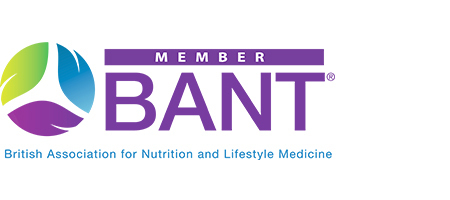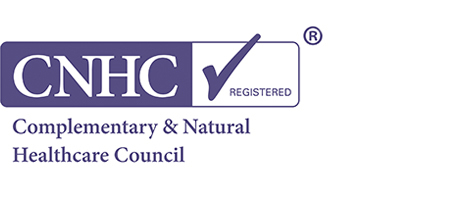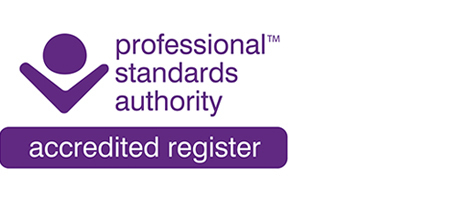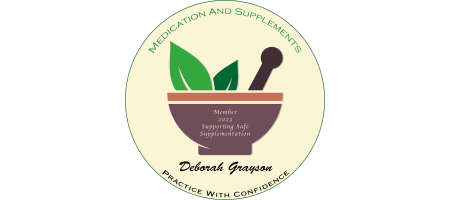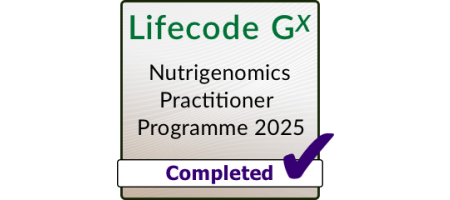Decoding the Mystery Behind a Sluggish Gallbladder: More Than Just Diet and Exercise

posted 28th January 2024

When it comes to our gallbladder, the blame game isn't limited to our food choices and exercise habits.
This unsung hero of the digestive system can be affected by a myriad of factors, and understanding them is key to keeping it in top shape.
Most of us don't give it much thought until it decides to throw a tantrum, leaving us with that uncomfortable, sluggish feeling.
But what exactly causes our trusty gallbladder to hit the brakes?
Let's dive into the top causes of a sluggish gallbladder and shed some light on this often-overlooked organ.
Dietary Culprits:
First up on our list of suspects are those sneaky dietary choices we make every day. A diet high in processed foods, saturated fats, and refined sugars can wreak havoc on your gallbladder.
These foods can lead to the formation of gallstones, causing your gallbladder to become sluggish and less effective in releasing bile – the superhero digestive juice.
Sedentary Lifestyle:
Picture this: your gallbladder is like a muscle, and just like any other muscle, it needs regular exercise to stay in top shape.
A sedentary lifestyle can slow down the overall digestive process, including the gallbladder's ability to contract and release bile efficiently.
So, get off that couch and give your gallbladder the workout it deserves!
Rapid Weight Loss:
Sure, shedding those extra pounds is fantastic, but losing weight too quickly can be a shock to your gallbladder.
Rapid weight loss can lead to an increased concentration of cholesterol in the bile, paving the way for gallstones. It's a delicate balance – slow and steady wins the gallbladder race!
Hormonal Havoc:
Ladies, listen up! Hormonal changes, especially during pregnancy or while taking birth control pills, can throw your gallbladder for a loop.
The increased levels of oestrogen can lead to the formation of gallstones, making your gallbladder sluggish and irritable. It's like a rollercoaster ride for your digestive system!
Genetics – The Blame Game:
Sometimes, you can't choose your family, and you certainly can't choose your genes. If your parents or close relatives have a history of gallbladder issues, you might be genetically predisposed to experiencing a sluggish gallbladder, however, working on your diet and lifestyle can help you overcome your genetic predisposition. Genetics loads the gun, environment pulls the trigger!
Join me as I unravel the additional causes of a sluggish gallbladder, exploring the links with blood sugar imbalances, oestrogen dominance, parasitic infections, environmental toxins, mould toxicity, chronic stress, low stomach acid, hypothyroidism, medications, nutrient deficiencies, and infections.
Blood Sugar Blues:
Maintaining stable blood sugar levels is not just crucial for diabetes prevention; it's also a key player in gallbladder health.
Fluctuations in blood sugar can lead to imbalances in insulin, triggering the liver to produce more cholesterol-rich bile. This can contribute to gallstone formation and, you guessed it, a sluggish gallbladder.
Oestrogen Dominance:
For the ladies out there, oestrogen dominance can throw another curveball at your gallbladder.
Elevated oestrogen levels, whether due to hormonal imbalances or certain medications, can contribute to the formation of gallstones.
It's like a hormonal rollercoaster that your gallbladder didn't sign up for!
Parasitic Intruders:
It might sound like a plot twist in a sci-fi movie, but parasitic infections can indeed be a silent contributor to gallbladder sluggishness.
Certain parasites can find their way into the gallbladder, causing inflammation and disrupting its normal function. It's like an unwelcome houseguest wreaking havoc on your digestive system.
Environmental Toxins and Mould:
In our modern world, environmental toxins and mould toxicity can cast a shadow on our gallbladder health.
Toxins can overload the liver, affecting bile production, while mould toxins can trigger inflammation. It's like a toxic duo creating a less-than-ideal environment for your gallbladder to thrive.
Chronic Stress:
Stress – the silent villain in many health stories. Chronic stress can impact the nervous system and disrupt the intricate dance of digestive processes, including gallbladder function. It's like a constant storm that leaves your gallbladder struggling to find calm waters.
Low Stomach Acid:
Contrary to popular belief, low stomach acid can contribute to gallbladder sluggishness.
Adequate stomach acid is essential for signalling the release of bile. Without this signal, your gallbladder might just decide to take a nap instead of getting to work.
Hypothyroidism:
The thyroid – the master regulator of our metabolism – also has a say in gallbladder health.
Hypothyroidism can slow down the overall digestive process, affecting bile flow and potentially leading to gallstones. It's like a traffic jam on the highway to proper digestion.
Medications and Nutrient Deficiencies:
Certain medications can impact gallbladder function, and nutrient deficiencies can add fuel to the fire.
For instance, a deficiency in vitamin C has been linked to an increased risk of gallstones. It's like a double whammy – medications disrupting the balance and nutrient deficiencies weakening the defences.
Infections:
Last but not least, infections can't be overlooked.
Infections in the gallbladder or surrounding areas can lead to inflammation and hinder proper gallbladder function. It's like a battle zone where your gallbladder is caught in the crossfire.
Conclusion:
The causes of a sluggish gallbladder are undoubtedly diverse, ranging from lifestyle factors to environmental influences and even our genetic makeup.
Understanding these additional culprits empowers us to take a holistic approach to gallbladder health.
So, pay attention to your body's signals, make informed choices, and give your gallbladder the TLC it deserves!
Transform your health, book a FREE 30 minute Health Review today!
References:
Everhart, J. E., Khare, M., & Hill, M. (1999). Prevalence and ethnic differences in gallbladder disease in the United States. Gastroenterology, 117(3), 632-639.
Feldman, M., & Friedman, L. S. (2019). Sleisenger and Fordtran's Gastrointestinal and Liver Disease. Elsevier.
Miquel, J. F. (2019). Liver disease related to metabolic syndrome: A complex relationship. World Journal of Gastroenterology, 25(3), 353-365.
Shabanzadeh, D. M., & Sørensen, L. T. (2016). JAMA surgery. 151(9), 903-912.
Aune, D., Sen, A., Prasad, M., Norat, T., Janszky, I., Tonstad, S., ... & Vatten, L. J. (2016). BMI and all cause mortality: systematic review and non-linear dose-response meta-analysis of 230 cohort studies with 3.74 million deaths among 30.3 million participants. BMJ, 353, i2156.
Le, K. A., & Ventura, E. E. (2013). Am J Clin Nutr, 97(2), 253–259.
Attili, A. F., Capocaccia, R., Carulli, N., Festi, D., Roda, E., & Barbara, L. (1995). Gut, 37(4), 570–574.
Kalaitzakis, E. (2006). World J Gastroenterol, 12(41), 6622–6626.
Wang, D. Q. (2007). Curr Opin Gastroenterol, 23(3), 253–260.
Konturek, P. C., Brzozowski, T., & Konturek, S. J. (2011). J Physiol Pharmacol, 62(6), 591–599.
Wright, J. V. (2001). Altern Med Rev, 6(5), 486–499.
Brewer, J. H., Thrasher, J. D., Straus, D. C., Madison, R. A., & Hooper, D. (2013). Front Neurol, 4, 190.
Lamps, L. W. (2015). Surg Pathol Clin, 8(4), 869–891.
Cui, Y., & Andersen, D. K. (2007). World Journal of Gastroenterology, 13(47), 6237–6248.



